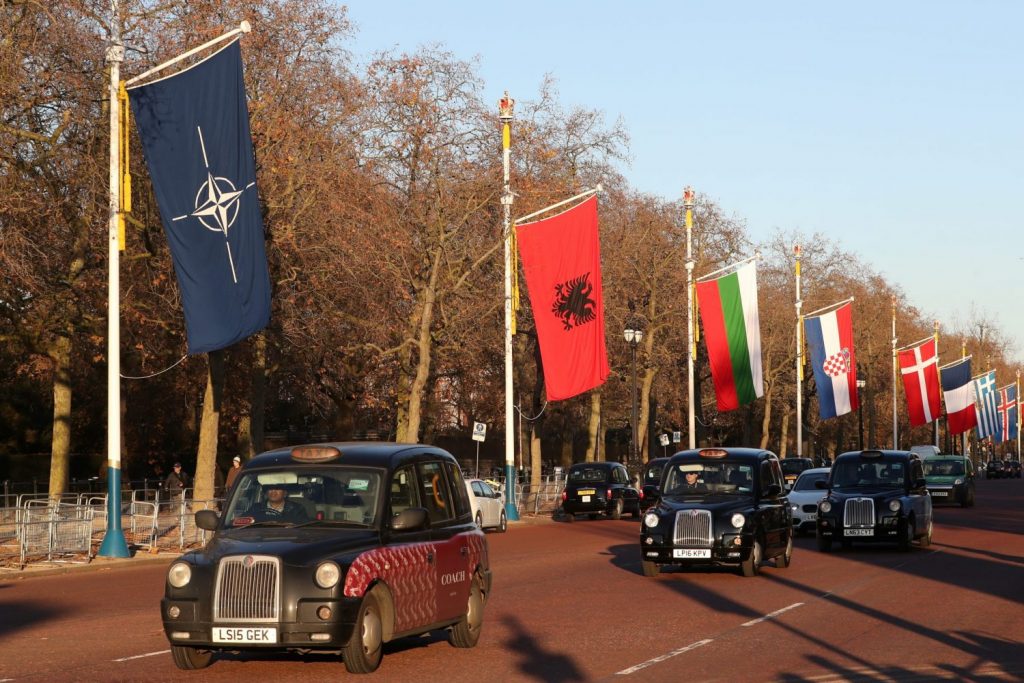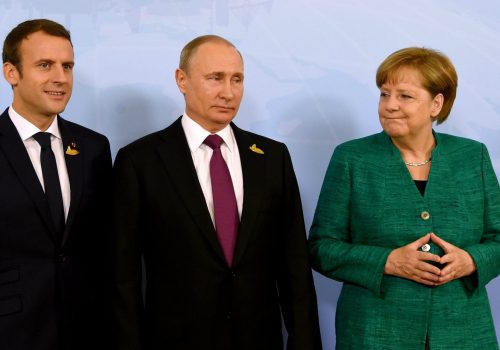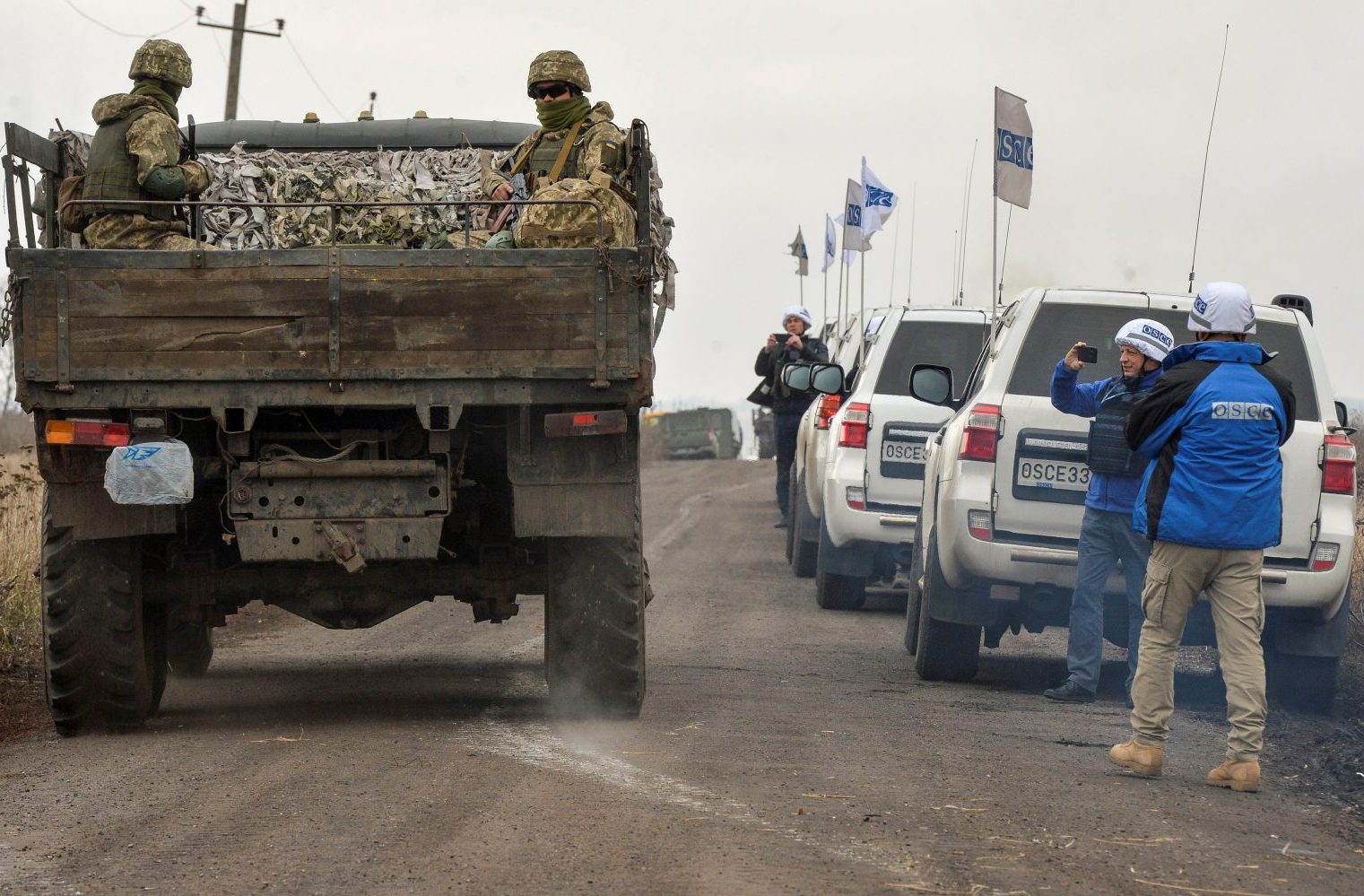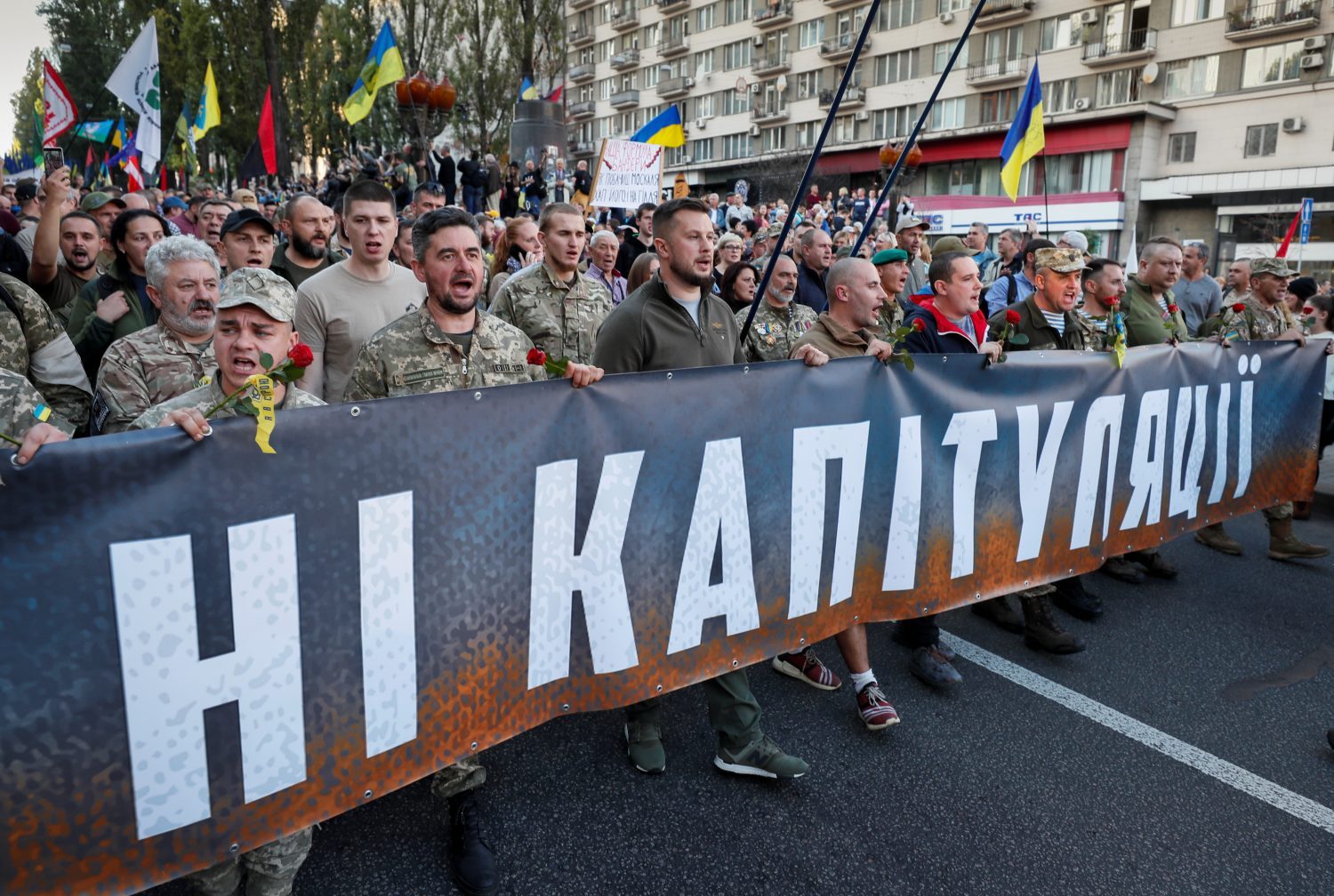December 2019 could become a decisive month for Ukraine. On December 3, a NATO Senior Leader Meeting will begin in London, and on December 9, the Normandy Four (Ukraine, Russia, France, and Germany) will hold a long-awaited peace summit in Paris. Meanwhile, if the tangled energy issues dividing Russia’s Gazprom and Ukraine’s Naftogaz are to be resolved before 2020, this must happen before December 13.
These events are taking place against a geopolitical backdrop that offers Ukraine little room for optimism. A candid assessment of current trends suggests that despite popular support for President Zelenskyy’s peacemaking efforts, Ukraine faces a range of serious challenges to its security that threaten to further undermine the country’s independence and territorial integrity.
Most importantly, there is no sign that Russia’s determination to destroy the de facto if not de jure mainsprings of Ukrainian statehood has abated. Moscow still demands that Kyiv accept formulas that would convert Ukraine into a confederation, whereby the currently occupied provinces of the Donbas could exercise a veto over central governmental initiatives, including efforts to combat the corruption that benefits Russia and erodes the foundations of Ukraine’s statehood. At the same time, Russia also refuses to discuss the status of Crimea.
Stay updated
As the world watches the Russian invasion of Ukraine unfold, UkraineAlert delivers the best Atlantic Council expert insight and analysis on Ukraine twice a week directly to your inbox.
Likewise, Moscow still wants to retain the ability to ship gas through Ukraine to Eastern Europe until the Nord Stream 2 pipeline becomes operational. Ultimately, Russia aims to control Eastern Europe and Ukraine through gas shipments so that it can use Nord Stream 2 to isolate Ukraine from Europe and make it dependent on Russia alone for gas. If Nord Stream 2 opens, Moscow could also deprive Ukraine of three billion dollars annually in revenues from transit.
These issues are of global importance because Russia’s war on Ukraine is only one part of a much broader conflict. Russian aggression against Ukraine not only reveals its contempt for the sovereignty of all Central and Eastern European states; it has also highlighted Moscow’s disregard for the freedom of the seas. In this sense, it is the centerpiece of a far larger fifteen-year war waged by Moscow against the West. This war takes the form of endless active measures, incitement of corruption, information attacks, cyber-strikes and influence operations designed to destabilize the European Union and NATO collectively while also targeting individual states. Indeed, Ukraine is only the most intense and visible flashpoint of a hybrid war that has made today’s Russia the main threat to NATO and to European security.
This makes the NATO summit in London and peace talks in Paris even more important. In London, the stage is already set for a showdown between the U.S. and its NATO allies. President Trump’s many outpourings that NATO allies are “raping” the United States by not spending enough on defense have inflamed a long-standing issue that threatens to detonate allied unity. Although NATO is spending more, too many allies are still not spending enough, while some refuse to accept the reality of the Russian threat. Germany will only reach NATO’s defense spending target of two percent GDP in 2031, for example. Meanwhile, Great Britain is in paralysis due to Brexit, while its defenses look woefully under-strength.
Across the English Channel, French President Macron’s recent remarks about “brain dead” NATO and the necessity of reaching an arrangement with Russia are explicitly tied to his (and presumably his government’s) sense that the Trump administration cannot be relied upon. Macron’s remarks ignited a firestorm, not least in Germany. Nevertheless, Berlin remains unwilling to accept any additional defense responsibilities. Instead, Germany has bullied Europe into accepting the Nord Stream 2 pipeline, which is of dubious economic benefit to anyone other than Gazprom and certain German businesses, while posing a threat to allied unity and the energy security of Poland, the Baltic States, and Ukraine.
Eurasia Center events

In both France and Germany, powerful interests clearly want to make a deal with Russia. However, any grand bargain with the Kremlin can only come at Ukraine’s expense. Indeed, the deals that both Macron and German business leaders appear to be advocating are intolerable and unacceptable to both Ukraine and Eastern Europe as a whole. This leads to the conclusion that European unity is unraveling.
In this deteriorating geopolitical environment, the US presence, as embodied by NATO, is essential for the continued security and prosperity of the continent. However, thanks to President Trump’s incompetent handling of European security issues and simultaneous pursuit of numerous incompatible Ukrainian policies, Washington currently has no clear position on Ukraine. This leaves Kyiv desperately short of allies it can count on as the country enters a potentially decisive month. In London, NATO may well issue a communique papering over its structural fractures, but this is unlikely to reverse the deteriorating broader picture. Unless NATO implements new policies and recovers its sense of purpose, not only will Ukraine remain vulnerable, but Vladimir Putin will also feel encouraged to continue waging hybrid war across Europe and beyond with impunity.
Stephen Blank is an independent consultant. He is a former senior fellow at the American Foreign Policy Council and MacArthur Fellow at the US Army War College.
Further reading
The views expressed in UkraineAlert are solely those of the authors and do not necessarily reflect the views of the Atlantic Council, its staff, or its supporters.

The Eurasia Center’s mission is to enhance transatlantic cooperation in promoting stability, democratic values and prosperity in Eurasia, from Eastern Europe and Turkey in the West to the Caucasus, Russia and Central Asia in the East.
Follow us on social media
and support our work
Image: London taxis drive past NATO and members' flags ahead of Nato Summit in London, Britain December 2, 2019 REUTERS/Yves Herman




